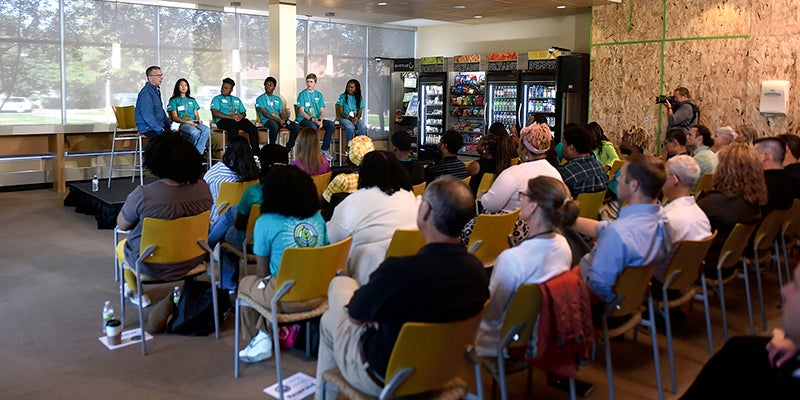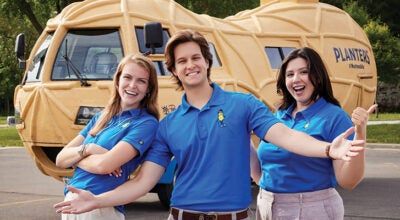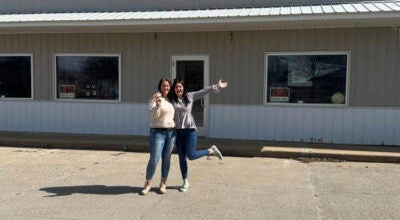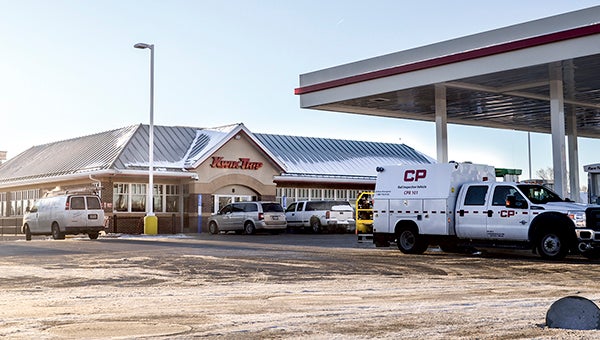‘It was unsettling …’
Published 6:25 am Saturday, March 20, 2021
|
Getting your Trinity Audio player ready...
|
Cedar Valley Services continues meeting pandemic challenges, keeps an eye on possible changes to state, federal wage laws
Rich Pavek, Executive Director of Cedar Valley Services, didn’t mince words as he looked back over the past year of the COVID-19 pandemic and its effects on business.
“It was unsettling for everybody,” he said, especially when looking at the early days of the pandemic.
But Cedar Valley adjusted and it did what it had to to support its employees, those with special needs or who are developmentally disabled, and staff.
Things still aren’t back to normal, but they are better.
“We’ve been able to bring back people gradually and eventually bring people in a limited number into our center-based program,” Pavek said.
It’s certainly not like it was in those first days of the pandemic, when businesses began shutting their doors without knowing exactly what the future would look like.
Initially, Cedar Valley suspended services, but they were able to pick up their contracts after being designated as essential services considering their work with the food industry, janitorial services outside of Cedar Valley and a commercial laundromat run by Cedar Valley.
They updated their preparedness plan and strengthened sanitation and personal protection gear. However, from the beginning, Cedar Valley has had to grapple with a diminishment of staff, either from staff simply moving on or from COVID-related reasons.
“That kind of remains a struggle through all of this,” Pavek said. “But we kept working.”
Nevertheless, those at Cedar Valley Services thought it important that they continue as best they could with being able to offer work to the employees and do what they could for staff.
But while staff and employees are happy to be able to see each other again, challenges remain.
Throughout the pandemic, Cedar Valley has taken a hit financially and it continues to be an issue as the business continues trying to move forward.
The losses come on a pair of fronts. Cedar Valley gains revenue based on the service hours provided to individuals working at Cedar Valley. If people can’t come in to work, Cedar Valley can’t bill for those.
They also received a hit on the business income side in terms of businesses it contracts with. As businesses shut down, things like custodial services were reduced and even contracts that were filled within Cedar Valley itself were reduced.
“Fortunately we have reserves,” Pavek said, though they are hesitant to break into those in the face of a continually changing future. “We’ve applied for public health grants, we have payroll projection loans from the first [CARES Act].”
However, Cedar Valley missed out on money in the second round of grants. That money was limited to businesses with 300 employees or less. Agency-wide — including sites in Albert Lea and Owatonna — Cedar Valley employs 500 people.
That hasn’t stopped the effort to secure more funding.
“Anything we can apply for we attempted to get into and now we’re just looking at gradually reopening,” Pavek said.
And they’re finding some success. In Austin, they are allowed to meet their 45 person capacity and full licensing, but they’ve also been able to raise that licensed number to 75.
“Now it’s getting some of the work to come back that was affected by COVID,” Pavek said.
Yet another challenge came on the transportation front. Cedar Valley Services also operates SMART Transit and that came with its own set of challenges. SMART had to meet spacing requirements that limited a 12-person bus to just three people, Pavek said. But thanks to state and federal funding, SMART was able to operate at 100 percent.
Despite all of these challenges, Cedar Valley has seen its share of success. Through imposed measures, there were very few exposures to COVID-19.
“We kept people in cohorts of 10 people,” Pavek said. “If there was an exposure in that cohort, then the whole cohort was self-quarantined, which was expensive, because we paid out their wages. We were very liberal with that.”
“We had very few serious problems,” he continued. “We were good about getting people tested when they wanted to.”
To go along with that, Cedar Valley employees got their first round of vaccine recently.
A matter of employment
Not every challenge Cedar Valley has faced has been COVID-19 related. They have also been monitoring possible changes to subminimum wages at both the state and federal level.
At the state level, Rep. Hunter Cantrell (DFL-Savage) has sponsored a bill that would repeal the law on subminimum wage. Her bill would also ensure, through the forming of a task force, that disabled people wouldn’t lose their jobs. Subminimum wage would gradually be phased out through Aug. 1, 2024.
Essentially, subminimum wages are designed to ensure opportunities are available to disabled people at below minimum wages so as not making them compete against non-disabled people at minimum wage. In Minnesota, the law permits these subminimum wages for disabled employees, but only if they get a waiver from the Labor Standards Division. The law, however, only allows employers to go as low as 50 percent of minimum wage and that rate is based on how much the worker can produce.
It’s a topic that’s split many with advocates for disabled people arguing this allows more opportunities for the developmentally disabled while advocates against the subminimum wage argue that it opens the door for employers to take advantage of the disabled.
Pavek and Cedar Valley staff are among those that are concerned that should subminimum wage be repealed — especially if minimum wage gets pushed to $15 an hour — then disabled people would lose those opportunities to work and contribute.
“We want to give all options to all the people we serve,” Pavek said. “It’s about opportunity and choice.”









